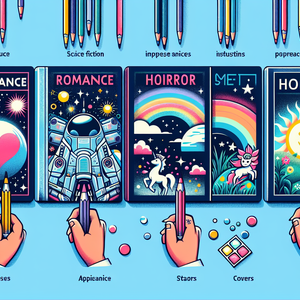Unseen Patterns of Weather: How Nature's Symphony Influences Our Emotions

It’s no secret that sunny days can elevate our spirits. Research shows that exposure to sunlight increases the production of serotonin, a neurotransmitter associated with feelings of happiness and well-being. A study conducted by the University of Michigan found that participants reported higher levels of happiness on sunny days compared to overcast ones. This effect is so pronounced that some workplaces even implement “sunshine breaks,” allowing employees to step outside and soak in the sun, ultimately enhancing productivity. Personal anecdotes abound regarding the uplifting power of sunlight. Many people recall childhood memories of playing outdoors on bright, sunny afternoons, with laughter and joy filling the air. This connection to happy memories reinforces the idea that weather, particularly sunny weather, can evoke positive emotions and foster a sense of well-being. Furthermore, the relationship between sunlight and vitamin D production is significant, as adequate levels of vitamin D are linked to improved mood and cognitive function.
The Melancholy of Rain: A Double-Edged Sword
While rain is often associated with feelings of gloom and sadness, its impact is complex. Research from the University of California suggests that prolonged rainy weather can lead to increased rates of depression and anxiety, with many individuals experiencing seasonal affective disorder (SAD) during the dreary months. The overcast skies and lack of sunlight can disrupt circadian rhythms, leading to disturbances in sleep and mood. However, rain can also evoke a sense of calm and introspection. Many people find solace in the sound of raindrops tapping against their windows, using it as an opportunity to relax, read a book, or engage in creative pursuits. This duality is reflected in literature and art, where rain often symbolizes both sorrow and renewal. The stories of artists and writers who have found inspiration in rainy days highlight how weather can serve as a catalyst for creativity, despite its potential to dampen spirits. For instance, renowned poet Robert Louis Stevenson wrote about the beauty of rain, emphasizing its role in nurturing the earth and inspiring the soul.
Storms: Nature’s Fury and Emotional Resonance
Severe weather events, such as thunderstorms or hurricanes, can evoke intense emotions ranging from fear to awe. Psychologists note that the unpredictability of storms can trigger anxiety, especially in individuals who have experienced trauma related to extreme weather. The sound of thunder and the sight of lightning can escalate feelings of vulnerability and helplessness, leading to heightened stress responses. Conversely, storms can also inspire a sense of wonder and respect for nature's power. Many people describe feeling invigorated by the energy of a storm, finding beauty in the dramatic skies and the raw force of wind and rain. The dual emotional response underscores the complexity of our relationship with weather, as it can simultaneously provoke fear and admiration. For example, storm chasers often seek out severe weather events, drawn by a fascination with nature's might and the thrill of witnessing powerful natural phenomena.
The Role of Community and Relationships
Weather can significantly influence social interactions and relationships. For instance, sunny weather often encourages outdoor gatherings, barbecues, and social events, fostering a sense of community. Conversely, inclement weather can lead to isolation, as people tend to stay indoors, which can impact mental health. A study published in the journal Social Science & Medicine revealed that individuals who live in areas with more consistent sunshine report higher levels of social connectedness. Psychologists emphasize the importance of community during challenging weather conditions. Sharing experiences, whether they be joyful or distressing, can strengthen bonds between individuals. This communal aspect of weather, whether it be celebrating a sunny day at the beach or seeking comfort in each other during a storm, highlights how our emotional responses to weather are often intertwined with our relationships. For example, neighborhoods often come together during a snowstorm, helping each other clear driveways or sharing resources, creating a sense of camaraderie that can uplift spirits.
The unseen patterns of weather play a pivotal role in shaping our emotional landscape. From the uplifting effects of sunshine to the introspective calm of rain, and the awe-inspiring fury of storms, each weather condition can evoke a spectrum of emotions. By understanding these connections, we can better navigate our emotional responses and harness the power of weather to enhance our well-being. Whether it’s embracing the sunshine, finding solace in the rain, or facing storms with resilience, recognizing the psychological effects of weather can lead to a deeper appreciation of nature’s symphony and its profound influence on our lives. As we tune into the emotional melodies of the weather, we can cultivate a more harmonious relationship with the world around us.
Meteorological Psychologist
Universities, research institutions, governmental agencies like the National Weather Service
Core Responsibilities
Conduct research on how various weather patterns affect mental health and emotional well-being.
Analyze data to identify correlations between weather changes and psychological conditions, such as Seasonal Affective Disorder (SAD).
Collaborate with meteorologists to develop educational programs on weather's psychological impacts.
Required Skills
Strong background in psychology and meteorology.
Proficiency in statistical analysis and research methodologies.
Excellent communication skills for presenting findings to diverse audiences.
Environmental Sociologist
Academic institutions, think tanks, non-profit organizations focused on social issues and environmental advocacy
Core Responsibilities
Examine the social implications of weather phenomena on community interactions and mental health.
Conduct field studies to understand how weather influences social behaviors and relationships.
Publish findings in academic journals and contribute to public policy discussions regarding climate and community health.
Required Skills
Expertise in sociology and environmental studies.
Strong qualitative and quantitative research skills.
Ability to engage with community groups and policymakers.
Creative Arts Therapist
Mental health clinics, community centers, private practice
Core Responsibilities
Use creative expression as a therapeutic tool to help clients process emotions related to various weather conditions.
Facilitate workshops that encourage participants to explore their feelings about weather through art, music, or writing.
Assess client progress and adapt therapeutic techniques based on their emotional responses to weather changes.
Required Skills
Background in psychology or counseling with a focus on art therapy techniques.
Strong interpersonal skills and empathy.
Creativity and experience in various art forms.
Climate Change Communication Specialist
Environmental NGOs, government agencies, educational institutions
Core Responsibilities
Develop educational materials and campaigns to raise awareness about the psychological impacts of climate change and weather variability.
Collaborate with scientists to translate complex data into relatable content for the public.
Organize community workshops and seminars to discuss the emotional and social implications of climate-related weather changes.
Required Skills
Excellent writing and communication skills, with a focus on public engagement.
Knowledge of climate science and its social dimensions.
Experience in marketing or public relations is a plus.
Weather-Related Content Creator
Media outlets, wellness websites, independent content platforms
Core Responsibilities
Produce engaging content that explores the intersection of weather and human emotions across various platforms (blogs, podcasts, social media).
Research and curate personal stories and scientific insights that reflect the emotional impacts of different weather conditions.
Collaborate with mental health professionals to provide resources and coping strategies for weather-related emotional challenges.
Required Skills
Strong writing and storytelling abilities, with a knack for digital content creation.
Familiarity with mental health topics and weather phenomena.
Proficiency in social media management and content marketing.


